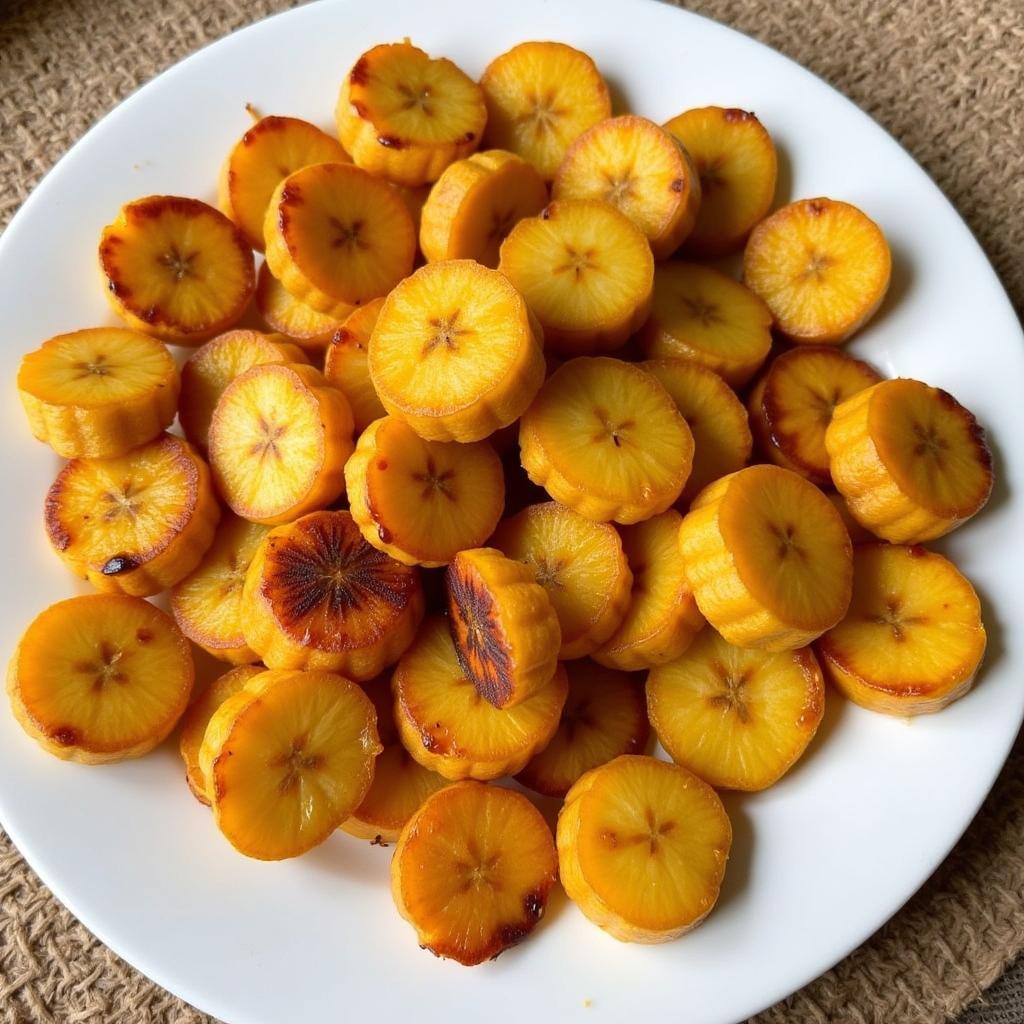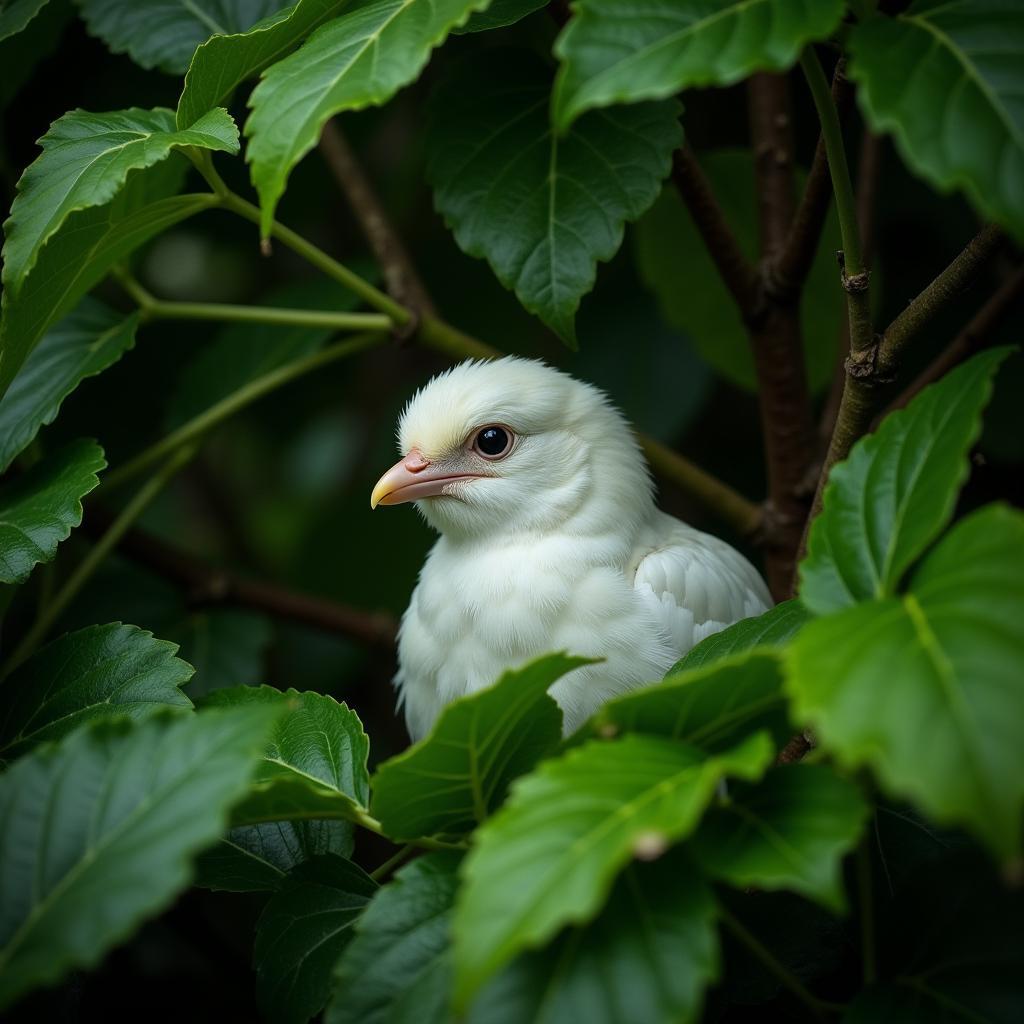Discovering the African Famous Banana: A Journey Through Taste and Tradition
The African Famous Banana, a staple food and cultural icon, plays a vital role in the lives of millions across the continent. From its diverse varieties to its significance in cuisine, ceremonies, and even art, the banana’s story is deeply intertwined with the history and identity of Africa.
Beyond the Cavendish: Exploring African Banana Varieties
Forget the ubiquitous Cavendish banana found in most supermarkets. Africa boasts a vibrant array of banana cultivars, each with unique flavors, textures, and uses. The East African Highland bananas, also known as matoke, are a starchy variety commonly cooked and mashed into a savory dish. Plantains, another prominent member of the banana family, are enjoyed both green and ripe, adding a subtle sweetness to stews or fried into crispy chips. These diverse varieties highlight the rich biodiversity of the African continent and demonstrate the banana’s adaptability to various climates and culinary preferences.
The Banana’s Cultural Significance in Africa
The banana is more than just a food source in Africa; it’s a cultural symbol woven into the fabric of many societies. From birth to death, bananas often accompany important life events. In some cultures, banana beer is brewed for celebrations and ceremonies, while banana leaves are used for wrapping food, creating shelter, and even in traditional medicine. The sturdy banana plant also provides fiber for weaving mats, baskets, and other handicrafts, showcasing the resourcefulness and creativity of African artisans.
From Farm to Feast: The African Famous Banana in Cuisine
The culinary uses of the African famous banana are as varied as its varieties. Matoke, for example, is a staple food in Uganda and other East African countries, often served with stews or roasted meats. Plantains, both green and ripe, find their way into countless dishes, from savory tagines to sweet desserts.  Ripe Plantains Fried into an African Dessert Whether steamed, boiled, fried, or roasted, the banana’s versatility makes it a cornerstone of African cuisine. ackee african fruit The abundance and versatility of this fruit make it an essential ingredient in diverse culinary traditions across the continent.
Ripe Plantains Fried into an African Dessert Whether steamed, boiled, fried, or roasted, the banana’s versatility makes it a cornerstone of African cuisine. ackee african fruit The abundance and versatility of this fruit make it an essential ingredient in diverse culinary traditions across the continent.
The Economic Impact of the African Famous Banana
The banana trade plays a significant role in the economies of many African countries, providing livelihoods for millions of farmers and traders. From small-scale family farms to large commercial plantations, banana cultivation contributes substantially to local and national economies. However, challenges such as pests, diseases, and fluctuating market prices impact the sustainability of banana production, highlighting the need for ongoing research and support for farmers.
Is the African Famous Banana Different from Other Bananas?
Yes, the “African famous banana” is a broad term encompassing many different varieties unique to the continent. While some might share similarities with bananas grown elsewhere, their distinct flavors, textures, and cultural significance set them apart. Dr. Aminata Sow, a renowned agricultural scientist from Senegal, explains, “The diversity of African bananas is a treasure trove of genetic material, offering immense potential for improving food security and resilience in the face of climate change.” This diversity not only provides nutritional value but also cultural richness to communities across the continent.
What Makes the African Banana so Famous?
Its fame stems from its deep integration into the daily lives and cultural heritage of numerous African societies. Beyond its culinary versatility, the banana’s significance in ceremonies, art, and traditional practices solidifies its iconic status. “The banana is more than just food; it’s a symbol of life, prosperity, and community,” adds Dr. Kwame Asante, a cultural anthropologist from Ghana. This multifaceted role contributes to the banana’s prominence within the cultural landscape of Africa. african handicrafts kenya The resourcefulness and creativity of African artisans are further exemplified by the use of banana fibers in crafting.
In conclusion, the African famous banana, in its many forms, is a vital part of the continent’s identity. From its diverse culinary applications to its cultural significance, the banana’s story is one of resilience, adaptability, and deep-rooted tradition. Exploring the world of African bananas offers a glimpse into the rich tapestry of life on this vibrant continent.
FAQ
- What is the most common type of banana in Africa? East African Highland bananas (matoke) are among the most prevalent.
- How are plantains different from other bananas? Plantains are starchier and typically cooked before eating, unlike dessert bananas.
- What is banana beer? A traditional alcoholic beverage brewed from bananas, popular in several African countries.
- How are bananas used in African ceremonies? They may be offered as gifts, incorporated into rituals, or used in celebratory feasts.
- Are African bananas exported? Yes, some varieties are exported, contributing to local economies.
- What are the challenges faced by banana farmers in Africa? Pests, diseases, and market volatility are among the main challenges.
- Where can I learn more about African cuisine? Numerous online resources and cookbooks offer insights into the diverse culinary traditions of Africa.
When you need assistance please contact Phone Number: +255768904061, Email: [email protected] Or visit us at: Mbarali DC Mawindi, Kangaga, Tanzania. We have a 24/7 customer service team.

